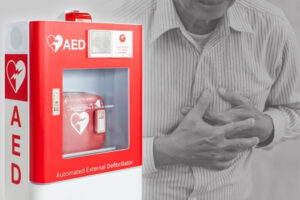30 Facts About The Heart to Pump Up Your Knowledge

30 Facts About The Heart to Pump Up Your Knowledge
30 Facts About The Heart
When it comes to keeping you alive and kicking, your heart is the true MVP. This muscular marvel works tirelessly, day in and day out, to keep blood flowing and your body running smoothly. Whether you’re resting, running, or doing your best dance moves, your heart’s got your back. Let’s dive into some heart-pounding facts that’ll make you appreciate this vital organ even more!
-
- Busy Bee: Your heart beats around 100,000 times a day, pumping about 2,000 gallons of blood through your body. That’s a lot of work for a muscle roughly the size of your fist!
-
- Speed Demon: The heart can speed up or slow down depending on your body’s needs. It can ramp up to 200 beats per minute during intense exercise or slow down to around 60 beats per minute while you’re chilling.
-
- Lifelong Buddy: Over an average lifetime, the heart will beat more than 2.5 billion times. That’s some serious commitment.
-
- Muscle Power: The heart is made up almost entirely of muscle, specifically cardiac muscle, which is incredibly strong and resilient.
-
- Location, Location, Location: Your heart is located slightly left of the center of your chest, nestled between your lungs.
-
- Electrical Wonder: The heart has its own electrical system, known as the cardiac conduction system, which controls the rhythm of your heartbeat.
-
- Heartbeat Symphony: A heartbeat consists of two sounds: “lub” (when the atrioventricular valves close) and “dub” (when the semilunar valves close).
-
- Blood Highway: The heart’s four chambers – two atria and two ventricles – work together to circulate blood throughout your body.
-
- Oxygen Express: Blood enters the heart low in oxygen, gets pumped to the lungs to pick up oxygen, and then is sent out to nourish the body.
-
- Gender Differences: On average, a woman’s heart beats faster than a man’s, usually by about 6-8 beats per minute.
-
- Animal Hearts: The blue whale has the largest heart of any animal, weighing about 400 pounds. Meanwhile, a hummingbird’s heart can beat over 1,200 times per minute!
-
- Heart Selfies: An electrocardiogram (ECG) can create a visual representation of your heart’s electrical activity, like a selfie for your heart.
-
- Rest and Digest: The parasympathetic nervous system helps slow down the heart rate during rest, promoting relaxation and digestion.
-
- Heart Attack Symptoms: They can differ between men and women. Men often experience chest pain, while women may have shortness of breath, nausea, or back/jaw pain.
-
- Evolutionary Wonder: The human heart has evolved over millions of years to become incredibly efficient at pumping blood.







